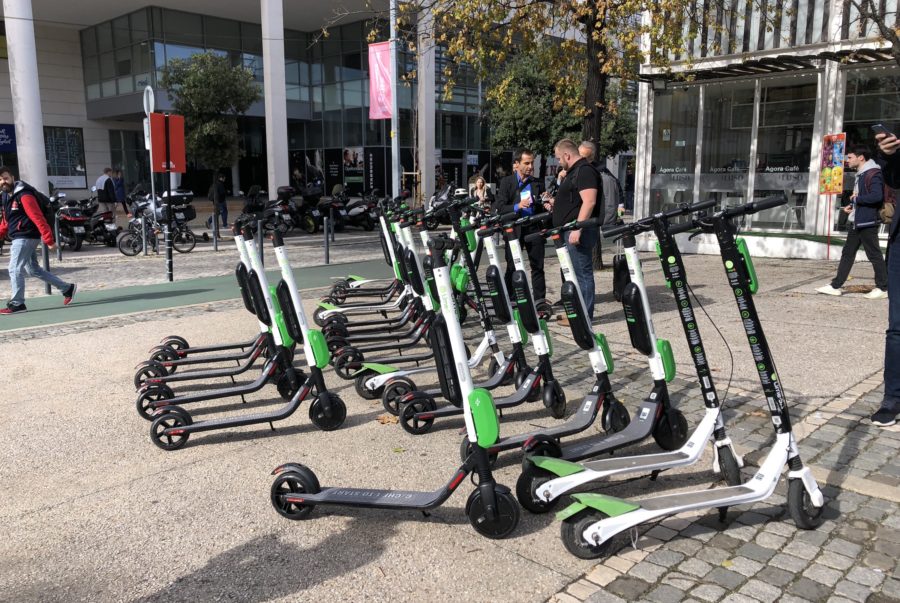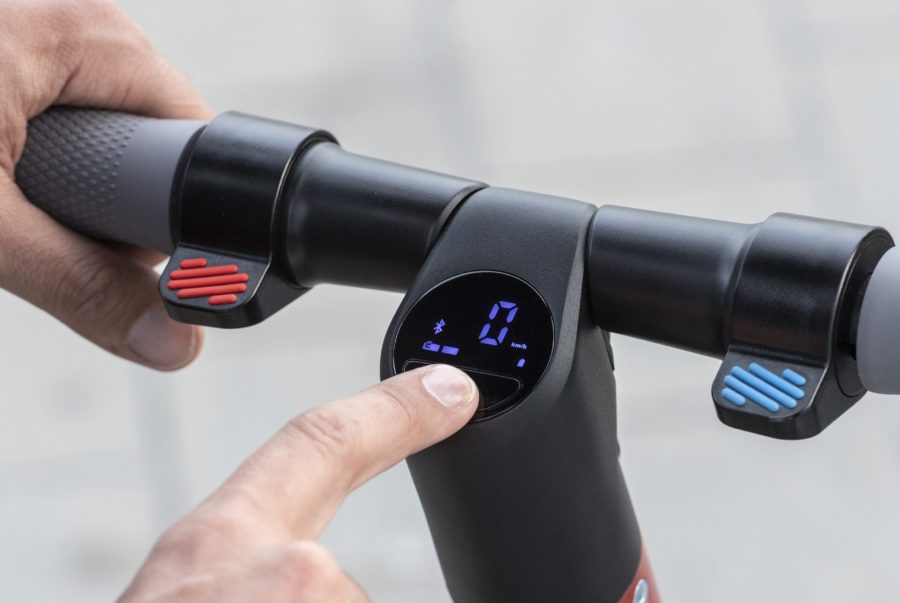The suppliers of e-scooters offer their product as an efficient method of transport for distances of less than five kilometres, thereby proclaiming the reduction of CO2 emissions from cars. In Germany, start-ups are in the starting blocks for their use.
The latest statistics from UBER and Lyft already show a trend towards the use of e-bikes and e-scooters instead of cars in the American cities where providers offer all these vehicles. This would be really good news from the point of view of those responsible in the urban centres. We are replacing today’s traffic with cars, in which an average of 1.4 people are usually travelling, with bicycles and scooters. How nice would that be?
Unfortunately, fundamental issues remain unresolved in many European centres, such as how cities regulate these e-scooters, where vehicles should be driven, laws for the use of helmets and the elimination of potential damage to manufacturers of e-scooters. Previous regulatory approaches include the limitation of the number of licensed scooters and the requirement for permits and fees.
But then there is the unremaining challenge in Germany to date.
E-scooters are prohibited in Germany
In Germany, e-scooters are completely forbidden on public roads. Anyone driving a scooter with an electric motor in this country is liable to prosecution. According to the current legal situation, motor vehicles driving faster than 6 km/h are considered motor vehicles and require a registration, driving licence and insurance for use in public spaces.
The start-ups in the country have recognised the potential of e-scooters
From the point of view of the many start-ups that have recognised the potential of these e-scooters in Germany so far, the ban is truly regrettable. Florian Walberg from Hamburg, who supplies the majority of his Egret E-Scooters abroad, currently stands out from this number of young challengers. Florian is one of the pioneers of e-scooters and their use in Germany. Together with the University of Applied Sciences in Hamburg, he organises seminars and awards internships for the use of e-scooters. He himself is behind the proposal of various parties in the Senate of Hamburg to finally get the e-scooters licensed in Hamburg.
The other e-scooter manufacturers in Germany come from all regions of the country. From Cologne origiates the Kumpan Electric scooters 1950 – the Moby Flow SXT Scooters is with 10.7 kg one of the lightest and most compact electric e-scooters in the world! PLEV Technologies from Cologne is a project of the Technical University of Cologne and presents a foldable e-scooter called Steereon. Bosch helped a team to develop what is now known as the Flynn e-scooter from urbanmates. The Moovi e-scooters from Hanover and the FlyKy scooter complete this list.
All these are startups that have prepared themselves for the operation of the e-scooters for their current use in the cities. It does not mean, that these scooters are all sharing-proof, however the start-ups need legal environments to allow their vehicles to hit the road.
We report on how this can be done efficiently in our last post of the series on e-scooters – on the way to the German city centres.
Missed one of the posts in the series? Follow our links below:
Part 1 – E-scooters on their way to the city centres
More posts from our series “E-scooter”:
Post a Comment
You must be logged in to post a comment.


























